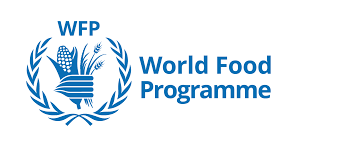… WFP Raises Alarm
Korede Abdullah in Lagos
The United Nations World Food Programme (WFP) has issued a grave warning that 58 million people across 28 critical crisis response operations—including Nigeria—may lose access to life-saving food assistance if new funding is not urgently received.
The 28 nations facing critical shortfalls include Nigeria, Lebanon, Somalia, Yemen, and others, with operations expected to experience dangerously low food supplies through August.
WFP stated, “Despite the generosity of many governments and individual donors, WFP is experiencing a steep decline in funding across its major donors.” Nigeria, alongside countries like Sudan, Syria, and Afghanistan, is included in this list of high-priority nations where millions depend on emergency food aid.
According to WFP, the agency is staring down a staggering 40 percent drop in funding for 2025 compared to last year. This shortfall is severely affecting emergency feeding programs globally, particularly those supporting vulnerable populations.
In Nigeria, where millions face acute food insecurity due to conflict and economic pressures, these cuts could have disastrous consequences.
The report highlights the dire need for continued support: “This is having severe repercussions for its food aid efforts globally, particularly emergency feeding programmes that support the most vulnerable.”
WFP leadership is urgently calling for donor support as they attempt to triage operations. “WFP is prioritizing countries with the greatest needs and stretching food rations at the frontlines… we are facing a funding cliff with life-threatening consequences,” warned WFP Assistant Executive Director, Rania Dagash-Kamara.
Nigeria is one of the countries where, without swift intervention, food shortages could destabilize already fragile communities. Dagash-Kamara added that emergency feeding programs “bring greatly needed stability to fragile communities, which can spiral downwards when faced with extreme hunger.”
Globally, a record 343 million people are now facing severe food insecurity, driven by conflict, economic instability, and climate-related disasters. WFP aims to reach 123 million of the most vulnerable in 2025, with Nigeria among the nations at the forefront of this effort.
Alarmingly, the agency notes that “nearly half” of those targeted for assistance—58 million people—“are at imminent risk of losing access to food assistance.” In Nigeria, this could mean the difference between survival and starvation for countless families.
In 2024 alone, WFP reached over 120 million people in 80 countries, but with current funding levels, sustaining these efforts is increasingly impossible.
As the statement makes clear, “WFP works to quickly adapt its operations to current low funding levels,” but without immediate donor support, millions in Nigeria and beyond may be left behind.



